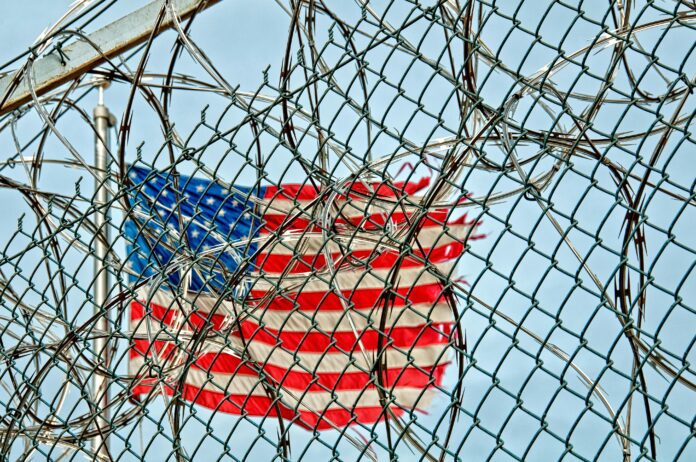Mexico Steps Up Border Controls
As the 2024 U.S. presidential election nears, Mexico border security has tightened significantly in response to U.S. pressure, resulting in a crackdown on migrants attempting to reach the United States. Mexico has deployed more military personnel and increased monitoring of highways, railroads, and less frequented migration routes to limit the number of asylum seekers from Central and South America. These efforts have led to over 700,000 migrant encounters in the first half of 2024, making Mexico border security a central component of U.S. immigration strategy amidst growing political tensions.
Mexico’s Increased Border Enforcement
Mexico’s decision to ramp up its enforcement efforts is largely a response to the U.S. government’s growing concerns over the migrant crisis. As the U.S. election draws near, both major political parties have made immigration control a central topic. The Biden administration, facing criticism over border management, has urged Mexico to play a stronger role in curbing illegal migration.
To comply, Mexican authorities have expanded their border control measures by deploying more troops to regions like Tapachula in the south, where many migrants cross. The checkpoints along highways have been increased, and stricter inspections of buses, trucks, and freight trains have been enforced to detect undocumented migrants. Additionally, military patrols have been assigned to areas previously less monitored, making it harder for migrants to find alternative routes into the U.S.
These enforcement tactics have sparked criticism from human rights organisations, who argue that they leave migrants vulnerable to criminal gangs and exploitative conditions. Migrants are often forced into overcrowded shelters where they face a lack of basic amenities, violence, and even kidnapping by criminal groups. The longer they remain in Mexico, the higher the risk of exploitation.
Humanitarian Impact on Migrants
The humanitarian consequences of Mexico’s heightened border enforcement are profound. Thousands of migrants have been detained or deported back to southern Mexico, often stranded in cities far from the U.S. border with limited options. These people, many of whom are fleeing violence, poverty, and political instability in their home countries, find themselves trapped in a cycle of detainment, deportation, and attempted crossings.
One of the most controversial aspects of Mexico’s enforcement approach is the “wear them out” tactic. Migrants detained near the northern U.S. border are often transported back to southern Mexico, in some cases as many as five or six times, forcing them to restart their journey. This cycle drains their already limited resources, leaving them vulnerable to predatory criminal gangs, who target migrants for robbery, extortion, and even kidnapping.
Despite these challenges, many migrants are unwilling to give up. Their determination to reach the U.S., driven by the dire conditions they face in their home countries, pushes them to endure the hardships. Humanitarian groups have called on both the Mexican and U.S. governments to address the root causes of migration and improve the conditions for those stranded in Mexico, but so far, these calls have gone largely unanswered.
U.S.-Mexico Collaboration on Migration Control
The collaboration between the U.S. and Mexico in managing migration underscores a political strategy to reduce migrant crossings into the U.S. The Biden administration has pressured Mexico to adopt stricter border policies, offering financial and political incentives in return. Although these measures have led to fewer migrants at the U.S. border, critics highlight significant humanitarian costs. With the U.S. elections approaching, immigration is expected to remain a key issue for both parties. Experts caution that unless underlying issues like economic disparity and violence are addressed, migration will continue, disproportionately affecting Mexico.
Frequently Asked Questions
Why has Mexico increased its border security in 2024?
Mexico’s border security has intensified due to pressure from the U.S. government as the presidential election nears. This collaboration aims to reduce the number of migrants crossing into the U.S.
What impact do Mexico’s new border policies have on migrants?
Migrants face repeated detentions, overcrowded shelters, and vulnerability to criminal gangs, often stuck in Mexico’s southern regions with little access to aid or opportunities to reach the U.S.
What role does the U.S. play in Mexico’s border enforcement?
The U.S. provides financial and political support, encouraging Mexico to implement stricter enforcement to curb migration flows ahead of the 2024 election.


